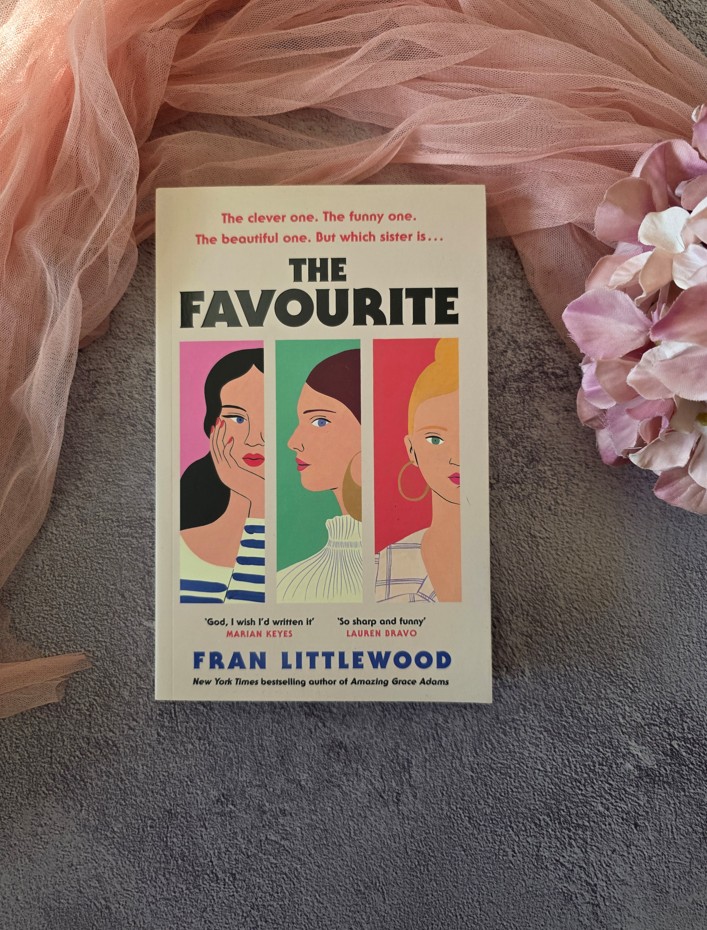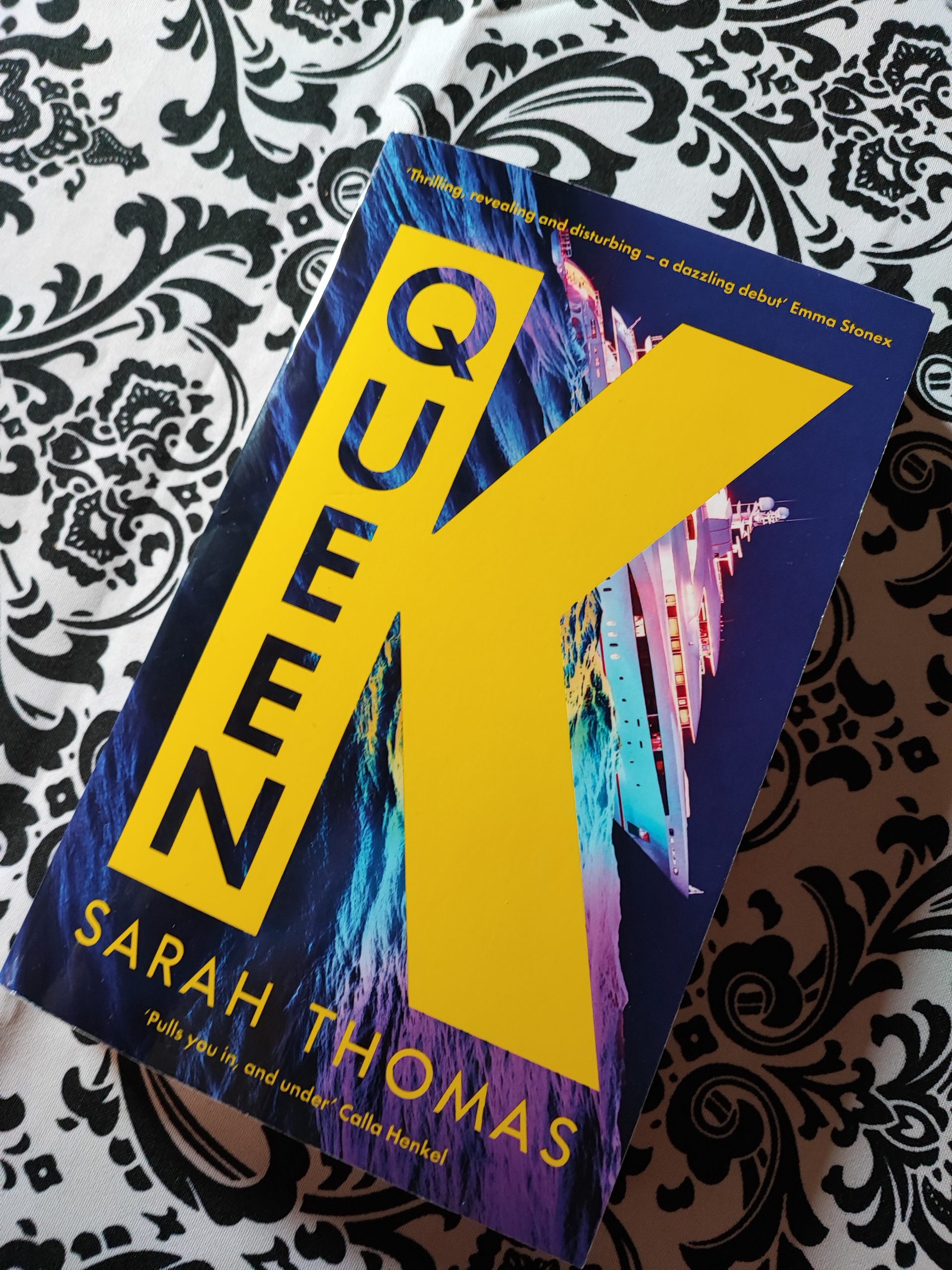 I had high hopes for The Favourite. Amazing Grace Adams, Fran Littlewood’s first book, really stood out to me. It was sharp, funny, and made me feel something. So, when I heard that her second book would be about family secrets, sibling relationships, and the effects of parental favouritism, I was all in. Family drama is what I love. If you give me a glass house full of grown kids, their partners, their own kids, and ageing parents, I’m ready for the emotional storm. But this one… it didn’t quite hit me where I wanted it to.
I had high hopes for The Favourite. Amazing Grace Adams, Fran Littlewood’s first book, really stood out to me. It was sharp, funny, and made me feel something. So, when I heard that her second book would be about family secrets, sibling relationships, and the effects of parental favouritism, I was all in. Family drama is what I love. If you give me a glass house full of grown kids, their partners, their own kids, and ageing parents, I’m ready for the emotional storm. But this one… it didn’t quite hit me where I wanted it to.
Summary of the Plot
The Fisher family gets together in a beautiful, remote glass house in the country to celebrate two important events: Vivienne’s 70th birthday and the naming ceremony for Alex’s surprise baby. The whole family is there: three sisters in their 40s (Alex, Nancy, and Eva), their partners, kids, and parents Vivienne and Patrick. During a family photo shoot, a tree falls, and Patrick instinctively runs to save one daughter, which accidentally shows who he thinks is his favourite. The event breaks the family’s fragile peace and starts a week of emotional turmoil, hidden truths, and long-held grudges.
The three sisters and their mother, Vivienne, tell the story from their own points of view, with flashbacks to when they were kids and young adults. Patrick, the father, stays quiet, and as the story goes on, his absence becomes more and more important.
Themes
- Sibling rivalry and parental favouritism, the unreliability of memory, motherhood and identity
- The emotional legacy transmitted across generations
- The conflict between appearance and reality, particularly within families
The glass house is a smart metaphor because it is clear, fragile, and impossible to hide in. It’s a little on the nose, but it works, especially as the characters start to fall apart.
 What Worked for me:
What Worked for me:
- The idea: The setup is great. Littlewood knows how to come up with a good idea. A family reunion in a glass house, a freak accident, and the revelation of a favourite child.
- Nancy’s parts: Nancy felt the most grounded and open to her emotions of the three sisters. There were times when her voice was clear and insightful, and I held on to those moments.
- The emotional effects: There are moments of brilliance when the story slows down and lets the characters deal with their pain. People have noticed how wounds from childhood affect adult relationships.
- Vivienne’s point of view: The chapters about the mother added depth, especially when they talked about getting older, feeling regret, and the complexity of maternal love.
What Didn’t Work So Well For Me
- Voices that weren’t clear; this was my biggest problem. I thought there would be different personalities and emotional tones because three sisters were telling the story. Instead, I kept going back to see who was talking. It was hard to get into their individual journeys because their voices mixed together.
- Too many characters and not enough growth: The cast grew because of partners, kids, and long flashbacks. I had a hard time connecting with most of them, which made the emotional payoff less strong.
- Writing that is thick and not in a straight line: The stream-of-consciousness style and jumps in time made it hard to read. I almost gave up halfway through, but I’m glad I didn’t. The last few chapters had some very emotional moments.
- Not caring about the characters: I never really cared what happened to them. I wanted to, but the book didn’t give me a good enough reason to.
 Who Might Like This:
Who Might Like This:
- People who like family dramas that take a long time to develop and have complex timelines
- Readers who like experimental writing and don’t mind putting in the work for emotional payoff
- Those who like stories about siblings, ageing parents, and the long shadow of childhood
Final Thoughts
The Favourite is a slow burning, sometimes chaotic look at family, identity, and the emotional toll of being “chosen.” It’s smart in some parts and emotionally raw in others, but overall it’s not very good. I wanted the characters to be more clearly defined, the emotions to be clearer, and the story to be tighter. That being said, if you like stories about messy families and don’t mind a story that doesn’t follow a straight line, there’s something here worth finding.
I didn’t like it, but I didn’t hate it either. Depending on your own family history, how much you like experimental storytelling, and how much you can handle characters you don’t like, this book might hit you differently. It was a mixed bag for me, but there were a few gems in there.
Thank you to Penguin Random House for my gifted copy.
This book is also published in some countries under the title “The Accidential Favourite” (which I actually like a bit more).
Also read:
Amazing Grace Adams by Fran Littlewood
Gifted & Talented by Olivie Blake

 What Worked for me:
What Worked for me: Who Might Like This:
Who Might Like This:

